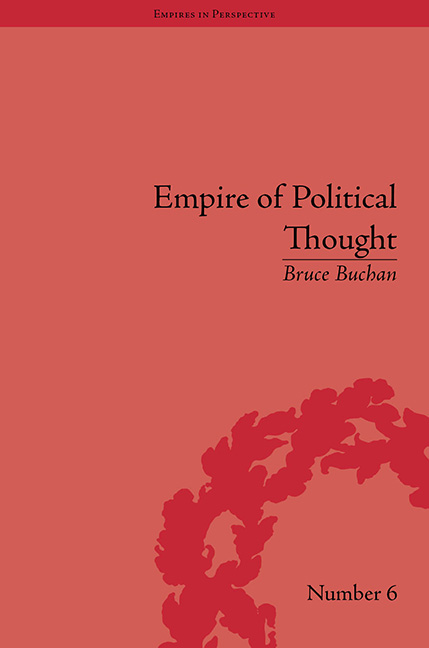Book contents
- Frontmatter
- CONTENTS
- Acknowledgements
- List of Illustrations
- Introduction
- 1 Savagery, Civilization and Political Thought
- 2 ‘Trafficking’ for Empire: Commerce, Consent and Colonization
- 3 Difficult Subjects
- 4 The Subject of War
- 5 Fit for Society
- 6 Liberalism, Self-Government and the Ethnography of ‘Primitive Society’
- Conclusion: After the Tide of History, Reconciliation?
- Notes
- Works Cited
- Index
Conclusion: After the Tide of History, Reconciliation?
- Frontmatter
- CONTENTS
- Acknowledgements
- List of Illustrations
- Introduction
- 1 Savagery, Civilization and Political Thought
- 2 ‘Trafficking’ for Empire: Commerce, Consent and Colonization
- 3 Difficult Subjects
- 4 The Subject of War
- 5 Fit for Society
- 6 Liberalism, Self-Government and the Ethnography of ‘Primitive Society’
- Conclusion: After the Tide of History, Reconciliation?
- Notes
- Works Cited
- Index
Summary
I have argued in this book that concepts of ‘civilization and savagery’ provided an intellectual foundation for the colonial government of Australia's Indigenous peoples. It was this foundation that enabled colonists and colonial administrators in Britain and Australia to perceive Indigenous people as ‘problems’ for colonial government to ‘resolve’. It also provided a framework of concepts with which the various policies and techniques of government devised to ‘resolve’ those ‘problems’ could be articulated and justified. As previous chapters have shown, the application of these concepts did not entail any uniformity in the precise definitions of the ‘problems’ of Indigenous government. Nonetheless, the influence and continuity of that discourse was an important, if not the central intellectual framework for Australia's early colonization.
By the time of Australia's Federation and political independence in 1901, however, the predominance of this discourse was already beginning to fade. In its place arose a more anthropological language in which older assumptions about civilization and historical development were gradually replaced by sociological analyses of Indigenous culture and social structure. Of course, this was not an ‘overnight’ replacement, and some of the anthropologists who came to influence early twentieth-century Indigenous policy in Australia – such as Baldwin Spencer and A. P. Elkin – continued to make use of the concept of civilization. As the influential anthropologist and Indigenous policy mandarin Elkin expressed it, the problem of Indigenous policy in the early twentieth century was that it amounted to a haphazard ‘drift to civilization’, whereas it should aim for an orderly ‘advance towards and in civilization’ through the adaptation of Indigenous culture (informed by white/European anthropological expertise) to ‘civilized’ white/European culture.
Today, the very concepts of ‘savagery’ and ‘civilization’ seem as alien to Australian political and public discourse as it is possible to be. And yet, the implications and long influence of those terms continue to reverberate in contemporary Australia. One of the most profound legacies of the terms is the continuous denial of Indigenous sovereignty in Australia. As I have argued in previous chapters, the colonial assertion of sovereignty was made on the basis that the Indigenous inhabitants of Australia were ‘savages’.
- Type
- Chapter
- Information
- Empire of Political ThoughtIndigenous Australians and the Language of Colonial Government, pp. 141 - 150Publisher: Pickering & ChattoFirst published in: 2014

